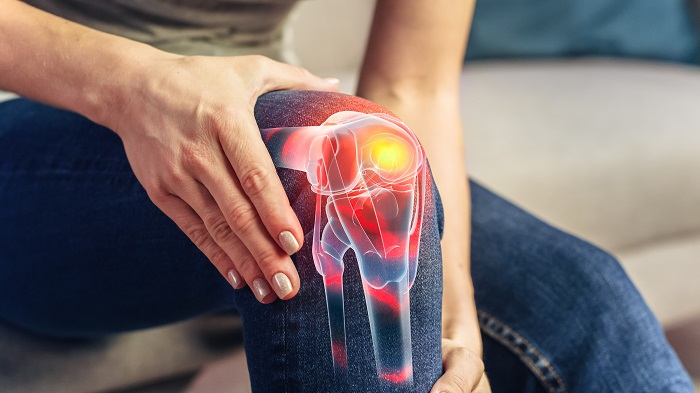In today’s fast-paced world, maintaining joint health is crucial for leading an active and fulfilling life. As the pillars of our mobility and daily function, our joints deserve the utmost care and attention. Whether you are looking to prevent future joint issues or seeking ways to manage current joint concerns, knowledge is your best defense.
At Lonseth Interventional Pain Centers, we believe in empowering our patients with the information they need to thrive. Dive into this guide on maximizing joint health and discover how to keep up with your mobility and function. If you are in search of personalized care, remember – at Lonseth, we are always here to support your journey to optimal joint health. Reach out today and let’s pave the path to your best self.

Keep Moving
In a world where many of us find ourselves in sedentary jobs, it is more important than ever to seize opportunities to move throughout the day. Keeping mobile not only promotes joint health but also encourages better circulation and muscle strength. Consider setting a timer to remind yourself to stand up and move around periodically or opt for a walk during breaks. Small movements accumulated over time can have a significant impact on your joint health. Remember, it is all about fostering a culture of movement in your daily life.
Want to learn more about Joint Health?
Or Call Us at 504-327-5857
Exercise and Stretch
Regular exercise coupled with stretching is a potent duo for maintaining joint health. While exercise builds muscle strength to support your joints, stretching ensures the flexibility and full range of motion of your joints. Establish a balanced routine that incorporates aerobic exercises, strength training, and flexibility workouts. Also, do not forget to include warm-up and cool-down routines to prevent injuries. Consult the experts at Lonseth for personalized exercise guidance.
But Don’t Overexert Yourself
While staying active is vital, it is equally important to avoid overexertion, which can lead to injuries and strain your joints. Be mindful of your body’s signals; if you experience pain or discomfort, it might be time to take a step back. Remember to rest adequately between workout sessions and to pace your physical activities to safeguard your joint health.
Avoid Foods that can Cause Inflammation
Inflammation can be a joint’s worst enemy. A diet high in processed foods, sugars, and unhealthy fats can potentially lead to increased inflammation in the body. Focus on incorporating anti-inflammatory foods rich in omega-3 fatty acids, antioxidants, and fiber, such as fatty fish, berries, and leafy greens. It’s about nourishing your body with the right foods to support joint health.
Quit Smoking
Smoking does not just affect your lungs; it can also wreak havoc on your joint health. The toxins from cigarettes can lead to increased inflammation, reducing the blood supply to the joints and potentially exacerbating joint problems. Quitting smoking can be a significant step towards improving your overall health, including that of your joints.
Get to a Healthy Weight
Carrying extra weight puts additional pressure on your joints, especially those in your knees, hips, and lower back. Working towards a healthy weight can reduce this strain, helping to alleviate pain and prevent future joint issues. Remember, every pound lost is a step towards happier, healthier joints.
Pay Attention to Posture
Good posture does not just enhance your appearance; it is also crucial for joint health. Maintaining an upright posture reduces the strain on your joints, helping to prevent wear and tear over time. Be mindful of your posture while walking, sitting, or performing daily tasks, and consider seeking expert advice on ergonomics to protect your joint health.
Sleep can Help Recovery
A good night’s sleep is more potent than one might think. Adequate sleep facilitates the body’s natural recovery processes, including those that maintain joint health. Establish a healthy sleep routine and consider consulting with a healthcare provider if you have concerns about your sleep patterns.
Stay Hydrated
Water is vital for joint health. The cartilage in our joints is predominantly made of water, making hydration critical for maintaining its health. A well-hydrated body ensures that nutrients are effectively transported to the joints, aiding in their function and repair. Aim for the recommended daily intake and remember that factors like exercise and heat can increase your hydration needs.
Consider Joint Health Supplements
Many people turn to supplements like glucosamine, chondroitin, and omega-3 fatty acids to support their joint health. While there’s varying evidence on their efficacy, some individuals do report relief. Always consult with your doctor before starting any supplements to ensure they are right for your needs and don’t interact with other medications.
Your Shoes Matter
What you wear on your feet can have a direct impact on the health of your joints, especially those in your knees, hips, and back. Opt for supportive, well-cushioned shoes that align your body properly. It might also be worth considering orthotic insoles if you have specific foot or gait issues.
Stay Ahead with Preventative Care
Regular check-ups with your doctor can help in early detection of potential joint issues. By addressing concerns early on, you can implement strategies and treatments that can prevent more severe problems in the future.
In the journey of life, the health of our joints plays a pivotal role in ensuring we move with ease and grace. By adopting the above practices, not only do we secure our mobility but also enhance our overall quality of life. If joint concerns ever cloud your horizon, remember that guidance and expertise are just a call away. At Lonseth Interventional Pain Centers, we are dedicated to ensuring your joints serve you well, today and always. Contact us; we’re here to walk beside you on your path to optimal joint health.
